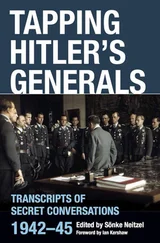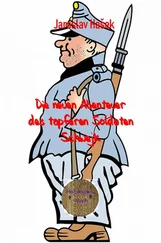We have to distinguish between different orders of frames of reference:
Frames of the first order are the broad sociohistorical backdrop against which people of a given time operate. They are what sociologist Alfred Schütz called “the assumptive world,” the things we pre-presume must be the case. They include categories of good and evil and true and false, what is edible and what is not, how much distance we should maintain when speaking to one another, and what is polite or rude. This “world as we feel it to be” has its effects on us less as beings capable of self-reflection than as creatures influenced by the unconscious and our emotions. {4} 4 A further influence on the concept of the frame of reference was the work of French sociologist Maurice Halbwachs, who was murdered in the Buchenwald concentration camp. He pointed out the formative influence of the social framework (“cadres sociaux”) in memory.
Frames of reference of the second order are more concrete in a historical, cultural, and often geographical sense. They comprise a sociohistorical space that, in most respects, can be clearly delimited—for instance, the length of a dictatorial regime or the duration of a historical entity like the Third Reich.
Frames of reference of the third order are even more specific. They consist of a concrete constellation of sociohistorical events within which people act. They include, for example, a war in which soldiers fight.
Frames of reference of the fourth order are the special characteristics, modes of perception, interpretative paradigms, and perceived responsibilities that an individual brings to a specific situation. This is the level of psychology, personal dispositions, and individual decision making.
This book analyzes second- and third-order frames of reference since that is primarily what our source material allows us to best approach.
FUNDAMENTAL ORIENTATIONS: WHAT IS ACTUALLY HAPPENING HERE?
On October 30, 1938, CBS Radio in the United States interrupted its regular programming with a special announcement that there had been a gas explosion on the planet Mars and a cloud of hydrogen was speeding toward the earth. Then, during a radio reporter’s interview with an astronomy professor, aimed at clarifying the potential dangers, another announcement was made about a seismic catastrophe of earthquake strength, presumably the result of a meteor hitting our planet. A barrage of news flashes followed. Curiosity seekers at the site of impact reported being attacked by aliens who emerged from the crater. Further objects were said to be striking the earth’s surface, and hordes of little green men from Mars were pressing on with their attacks. The military had been deployed, with little success. The aliens were marching on New York. Warplanes took to the air. People began fleeing the danger zone. Panic was breaking out.
At this point a change in frame of reference occurred. Up until the episode about the warplanes, the news reports were simply following the script of a radio play Orson Welles had adapted from H. G. Wells’s novel The War of the Worlds . But the people fleeing in panic were real. Among the six million Americans who had tuned in to Wells’s radio broadcast, two million of them believed every word they heard. Many of them hastily packed their things and ran out into the streets to escape the alleged alien gas attacks. Telephone lines were jammed for hours, and it took hours more until news got around that the whole thing was fictional. {5} 5 It is unclear precisely how many people panicked. The New York Times ran a story on 31 October 1938 entitled “Radio Listeners in Panic, Taking War Drama as Fact, ” and reported on various incidents, in which an entire block’s worth of people fled their apartments. The article did not use the phrase “mass panic,” although a significant number of people certainly did mistake fiction for fact.
This legendary event, which established Orson Welles’s fame, vividly illustrated the truth of sociologist William I. Thomas’s 1917 theorem: “If men define situations as real, they are real in their consequences.” No matter how objectively wrong or irrational people’s estimation of reality may be, the conclusions they draw create new realities.
That was the case with the listeners who had not heard the announcement that The War of the Worlds was a radio play and who thought the alien invasion was really happening. Nineteen thirties communications technology, of course, did not allow people to quickly check the truth of what they had heard, and those who fled their apartment buildings saw crowds of other people also taking to the streets. What reason did they have to suspect they had been taken in by a hoax? Human beings always seek to confirm their perception and interpretation of reality by observing what other people do, all the more so in unexpected and threatening situations that make people lose their orientation and ask: what is going on here and what should I do?
The War of the Worlds is a spectacular example, but it only illustrates how people behave when they are trying to orient themselves. Modern societies in particular, with their rich variety of functions, roles, and complex situations, demand that their members constantly interpret reality. What is happening here? How can I fulfill expectations of me? Most of these questions remain unconscious because the lion’s share of the orientation work happens automatically, steered by routines, habits, prescripted responses, and rules. But in cases where things don’t function as they should, when accidents, misperceptions, and mistakes occur, we become explicitly conscious of the need for what we are always implicitly doing: interpreting what is going on in front of our senses.
Naturally, this interpretative work does not happen in a vacuum or start from the very beginning. Interpretation itself is bound to frames, perspectives comprised of many elements that structure and organize experiences as we are in the process of making them. Following the analysis of Gregory Bateson {6} 6 Gregory Bateson, Ökologie des Geistes (Frankfurt/Main: Suhrkamp, 1999).
and Alfred Schütz, {7} 7 Alfred Schütz, Der sinnhafte Aufbau der sozialen Welt: Eine Einleitung in die verstehende Soziologie (Frankfurt/Main: Suhrkamp, 1993).
Erving Goffman described a plethora of such frames and their attendant characteristics. In so doing, he elucidated not only how frames comprehensively organize our everyday perceptions and orientation, but how they yield highly divergent interpretations, depending on contextual knowledge and standpoint of observation. Take the example of fraud. For the swindler, for example, the framework of activity is a “deceptive maneuver,” while for his victim it is that which is being deceptively advanced as true. {8} 8 Erving Goffman, Rahmenanalyse (Frankfurt/Main: Suhrkamp, 1980), p. 99.
Or, as Polish journalist Kazimierz Sakowicz noted in his diary in the context of World War II and the Holocaust: “For Germans, 300 Jews mean 300 enemies of humanity; for Lithuanians, they mean 300 pairs of shoes and trousers.” {9} 9 Kazimierz Sakowicz was a Polish journalist who began documenting the mass murder of Lithuanian Jews in 1941. Rachel Margolis and Jim Tobias, eds., Die geheimen Notizen des K. Sakowicz: Dokumente zur Judenvernichtung in Ponary, 1941–1943 (Frankfurt/Main: Fischer, 2005), p. 53.
Stanley Milgram once said that he was curious about why people would rather burn to death in a house fire than run outside without trousers. Seen objectively, this is an example of irrational behavior. But subjectively, it shows that standards of decency can become barriers to necessary strategies of survival, and that these barriers can be hard to overcome. In World War II, some Japanese soldiers preferred to take their own lives rather than become prisoners of war. In Saipan, hundreds of civilians jumped to their deaths over cliffs in order to avoid falling into American hands. {10} 10 Williamson Murray and Allan R. Millet, A War to Be Won: Fighting the Second World War (Cambridge: Harvard University Press, 2001), p. 360.
Even in life-or-death situations, cultural ties and duties often outweigh the instinct for survival. This is why people die in the attempt to rescue a dog from drowning, or decide to become suicide bombers.
Читать дальше












